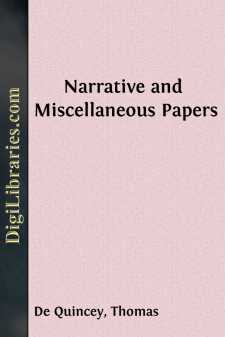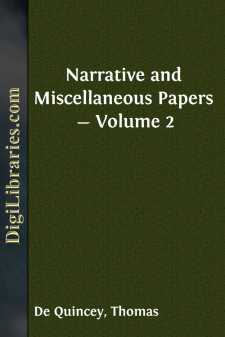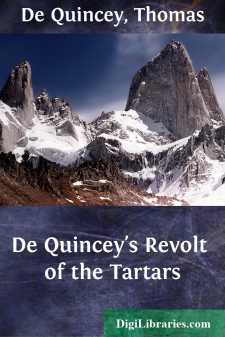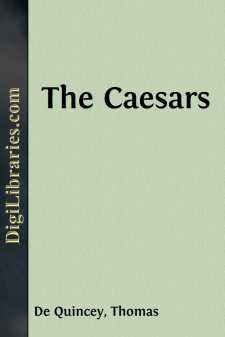Categories
- Antiques & Collectibles 13
- Architecture 36
- Art 48
- Bibles 22
- Biography & Autobiography 813
- Body, Mind & Spirit 142
- Business & Economics 28
- Children's Books 14
- Children's Fiction 11
- Computers 4
- Cooking 94
- Crafts & Hobbies 4
- Drama 346
- Education 46
- Family & Relationships 57
- Fiction 11829
- Games 19
- Gardening 17
- Health & Fitness 34
- History 1377
- House & Home 1
- Humor 147
- Juvenile Fiction 1873
- Juvenile Nonfiction 202
- Language Arts & Disciplines 88
- Law 16
- Literary Collections 686
- Literary Criticism 179
- Mathematics 13
- Medical 41
- Music 40
- Nature 179
- Non-Classifiable 1768
- Performing Arts 7
- Periodicals 1453
- Philosophy 64
- Photography 2
- Poetry 896
- Political Science 203
- Psychology 42
- Reference 154
- Religion 513
- Science 126
- Self-Help 84
- Social Science 81
- Sports & Recreation 34
- Study Aids 3
- Technology & Engineering 59
- Transportation 23
- Travel 463
- True Crime 29
Narrative and Miscellaneous Papers
Description:
Excerpt
THE HOUSEHOLD WRECK.
'To be weak,' we need not the great archangel's voice to tell us, 'is to be miserable.' All weakness is suffering and humiliation, no matter for its mode or its subject. Beyond all other weakness, therefore, and by a sad prerogative, as more miserable than what is most miserable in all, that capital weakness of man which regards the tenure of his enjoyments and his power to protect, even for a moment, the crown of flowers—flowers, at the best, how frail and few! —which sometimes settles upon his haughty brow. There is no end, there never will be an end, of the lamentations which ascend from earth and the rebellious heart of her children, upon this huge opprobrium of human pride—the everlasting mutabilities of all which man can grasp by his power or by his aspirations, the fragility of all which he inherits, and the hollowness visible amid the very raptures of enjoyment to every eye which looks for a moment underneath the draperies of the shadowy present, the hollowness, the blank treachery of hollowness, upon which all the pomps and vanities of life ultimately repose. This trite but unwearying theme, this impassioned common-place of humanity, is the subject in every age of variation without end, from the poet, the rhetorician, the fabulist, the moralist, the divine, and the philosopher. All, amidst the sad vanity of their sighs and groans, labor to put on record and to establish this monotonous complaint, which needs not other record or evidence than those very sighs and groans. What is life? Darkness and formless vacancy for a beginning, or something beyond all beginning—then next a dim lotos of human consciousness, finding itself afloat upon the bosom of waters without a shore—then a few sunny smiles and many tears—a little love and infinite strife—whisperings from paradise and fierce mockeries from the anarchy of chaos—dust and ashes—and once more darkness circling round, as if from the beginning, and in this way rounding or making an island of our fantastic existence,—that is human life; that the inevitable amount of man's laughter and his tears—of what he suffers and he does—of his motions this way and that way—to the right or to the left—backwards or forwards—of all his seeming realities and all his absolute negations—his shadowy pomps and his pompous shadows—of whatsoever he thinks, finds, makes or mars, creates or animates, loves, hates, or in dread hope anticipates;—so it is, so it has been, so it will be, for ever and ever.
Yet in the lowest deep there still yawns a lower deep; and in the vast halls of man's frailty, there are separate and more gloomy chambers of a frailty more exquisite and consummate. We account it frailty that threescore years and ten make the upshot of man's pleasurable existence, and that, far before that time is reached, his beauty and his power have fallen among weeds and forgetfulness. But there is a frailty, by comparison with which this ordinary flux of the human race seems to have a vast duration....












